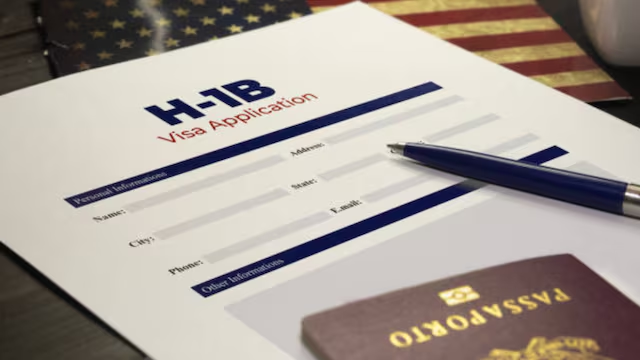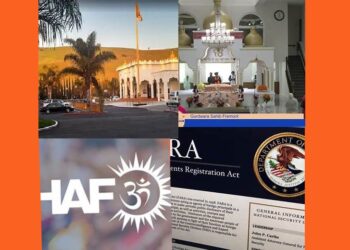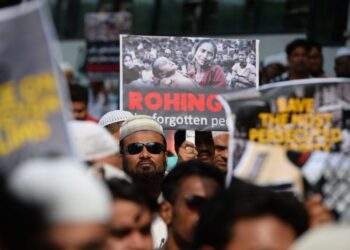Top U.S. technology companies including Google, Amazon, and Microsoft have issued internal advisories to employees holding H-1B visas, urging them to limit international travel amid rising immigration policy uncertainty. The warnings are aimed particularly at Indian professionals, who represent the largest group of H-1B visa recipients, many of whom now face elevated risks of re-entry denial when traveling abroad.
This development underscores the increasingly complex and precarious landscape for non-immigrant skilled workers in the United States, particularly as immigration policies become tighter and more unpredictable in the lead-up to the U.S. elections.
Tech Giants Respond to Immigration Uncertainty
According to reports, internal communication circulated among employees of Google, Amazon, Microsoft and Apple recommends that staff on non-immigrant work visas, including H-1B, L-1 and OPT (Optional Practical Training), carefully reconsider international travel unless it is absolutely necessary. The companies warn that returning to the U.S. may not be guaranteed, even with valid documentation.
This cautionary guidance stems from a combination of factors, including:
- Longer visa stamping wait times at US embassies in India and other countries
- Policy unpredictability around non-immigrant visa categories
- Reports of increased questioning and rejections at ports of entry
- Rising anxiety about immigration enforcement and legal status
The advisory follows growing concern within corporate legal departments that employees on temporary visas may face difficulty returning to the United States if visa or documentation issues arise while abroad.
H-1B Visa Overview and Indian Workforce
The H-1B visa program, capped annually at 65,000 visas (with an additional 20,000 for advanced degree holders), allows U.S. employers to hire foreign workers in specialised fields such as IT, engineering, and finance. A large percentage of these visas are issued to Indian nationals, who have historically formed the backbone of the U.S. tech industry’s foreign talent pool.
According to the U.S. Citizenship and Immigration Services (USCIS), Indians accounted for more than 70% of new H-1B visa approvals in 2023. With many of these professionals employed by leading tech firms and outsourcing giants, the warning from top employers has caused considerable unease among employees and their families.
Employee Concerns: Delays, Green Card Backlog, and Legal Risks
For Indian tech workers, the situation is exacerbated by the green card backlog, which can stretch over decades due to per-country caps. Many H-1B holders remain in a legal limbo for years, renewing their status and work authorisation multiple times while waiting for permanent residency.
The fear of travel-related complications is not unfounded. Numerous H-1B workers have faced:
- Visa appointment delays of several months at consulates
- Scrutiny over employment intent and job role
- Documentation inconsistencies leading to rejections
- Policy changes mid-travel affecting their ability to return
Several tech professionals have reportedly cancelled trips to India, citing risks associated with being stuck overseas due to delayed visa appointments or sudden shifts in U.S. immigration procedures.

Corporate Measures to Support Visa Staff
In response, companies are offering various forms of support to help affected employees navigate the uncertain environment. These include:
- Legal advisory services to ensure proper documentation
- Paid premium processing for H-1B visa extensions and renewals
- Emergency travel planning assistance
- Frequent internal updates on U.S. Department of Homeland Security (DHS) and USCIS policies
An internal HR email shared with affected teams highlighted the importance of avoiding last-minute travel and carrying all immigration-related documents when commuting domestically or internationally.
The message read: “We advise all visa-holding employees to consult with legal before making international travel plans. Given recent developments, re-entry to the United States may be subject to additional scrutiny and cannot be guaranteed, even with valid documents.”
Changing Political Winds Add to Worries
The upcoming U.S. presidential elections have added another layer of uncertainty for immigrant professionals. Several candidates have made immigration enforcement and legal reform key points of their campaign rhetoric, raising fears of abrupt policy changes.
Reports have surfaced that some H-1B workers are even concerned about potential changes to birthright citizenship laws, which could affect their children born in the U.S. While no formal policy has been announced in this regard, the atmosphere of uncertainty has amplified anxiety within immigrant communities.
A senior software engineer from Hyderabad currently employed in Seattle shared: “My H-1B visa is valid, but with so many unknowns, I don’t want to risk going back to India for my cousin’s wedding. I might not be allowed to return, and my wife’s visa is still being processed.”
Broader Industry Impact and Outsourcing Firms
The ramifications of restricted travel and tightened policies extend beyond individual employees. U.S.-based tech companies and IT service firms rely heavily on the H-1B programme to bridge skill gaps, particularly in software development, data science, AI, and cybersecurity.
Top recipients of H-1B visas in recent years have included Infosys, TCS, Wipro, HCL Technologies, Cognizant, as well as major U.S. firms such as Amazon, Meta, Microsoft, and Apple.
Any disruption to the movement or legal standing of these employees can affect project timelines, innovation cycles, and service delivery.
Recommendations for H-1B Visa Holders
Immigration experts and attorneys recommend that H-1B visa holders adopt a cautious and well-informed approach during this time. Some key recommendations include:
- Avoid international travel unless absolutely necessary
- Keep work authorisation and visa documents updated and easily accessible
- Consult company immigration counsel before travel or job changes
- Stay informed about USCIS policy updates and legal requirements
- Prepare backup documentation, including employment verification letters and I-797 approvals
Additionally, those awaiting visa stamping or extension appointments are advised to monitor consular appointment availability regularly and explore third-country options where applicable.
Building Resilience in the Face of Uncertainty
Despite the current challenges, companies and immigration advocates continue to push for policy reform that supports highly skilled workers. Proposals to clear green card backlogs, modernise visa allocation processes, and provide more predictable work pathways have been tabled in recent years, though progress remains slow.
In the interim, the message from major employers is clear: be cautious, be prepared, and stay informed.
As the global technology workforce becomes increasingly interconnected, policies that affect mobility and access have implications not just for individuals but for entire innovation ecosystems. Indian H-1B visa holders, who have long played a pivotal role in driving U.S. tech success, are navigating one of the most uncertain periods in recent history.
For continued updates on immigration policies affecting Indian professionals in the U.S., visit NRIAffairs.com’s Work & Immigration section.











